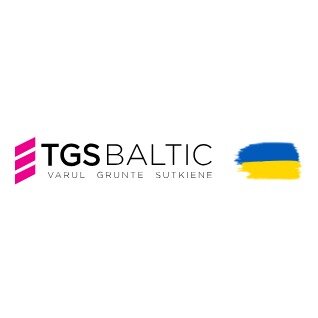Best Banking & Finance Lawyers in Tartu
Share your needs with us, get contacted by law firms.
Free. Takes 2 min.
List of the best lawyers in Tartu, Estonia
About Banking & Finance Law in Tartu, Estonia
Banking and finance law in Tartu, Estonia, encompasses the legal framework regulating the activities of banks, financial institutions, investors, and borrowers. As the second-largest city in Estonia and a regional hub for education and technology, Tartu has a growing financial sector that interacts with both domestic and international markets. Banks in Tartu offer a wide range of services, including consumer and business loans, investments, and payment solutions. The financial sector in Estonia is known for its digital innovation, strict adherence to European Union regulations, and an emphasis on transparency and trust. Laws, regulations, and compliance requirements are enforced by governmental bodies to ensure secure operations and the protection of both institutions and consumers.
Why You May Need a Lawyer
There are several situations where individuals or businesses in Tartu may require the assistance of a banking and finance lawyer. Common scenarios include:
- Securing or restructuring loans for personal or business purposes
- Resolving disputes with banks or other financial institutions
- Buying, selling, or investing in businesses
- Dealing with insolvency or bankruptcy matters
- Ensuring compliance with local and EU financial regulations
- Understanding the terms and risks of complex financial products
- Recovering assets or enforcing security interests
- Addressing allegations of financial misconduct or fraud
- Expanding business activities across borders, needing to comply with both Estonian and international regulations
A knowledgeable lawyer can interpret complex legal documents, help navigate regulations, and negotiate favorable terms while protecting your rights and interests.
Local Laws Overview
The banking and finance sector in Estonia operates under both national legislation and European Union regulations. In Tartu, major legal instruments and key aspects include:
- Credit Institutions Act - Governs the licensing, supervision, and operation of banks and credit institutions in Estonia.
- Estonian Money Laundering and Terrorist Financing Prevention Act - Establishes rules for preventing money laundering and ensures due diligence by financial institutions.
- Financial Supervision Authority (Finantsinspektsioon) - The principal regulator overseeing banks, insurance providers, investment firms, and the securities market.
- Consumer Protection Act - Safeguards the rights of customers using financial services, including transparency of information and fair treatment.
- Bankruptcy Act - Outlines the process for declaring and resolving insolvency both for individuals and companies.
- Personal Data Protection Act - Ensures that banks and financial institutions handle clients’ personal data in compliance with GDPR standards.
It is also critical to recognize that the law requires banks and clients in Tartu to maintain robust compliance programs and adhere to anti-money laundering (AML) and know-your-customer (KYC) requirements. Contracts and agreements must be clear, transparent, and comply with national and EU norms.
Frequently Asked Questions
What should I know before applying for a loan in Tartu?
Before applying for a loan, understand the interest rates, repayment terms, collateral requirements, and any associated fees. Estonia’s strict regulations require banks to disclose all relevant information, but consulting a lawyer can help clarify terms and assess risks.
Is it safe to invest in Estonian banks?
Estonian banks are regulated by the Financial Supervision Authority and must comply with stringent EU and national regulations. These measures help ensure safety, but like any investment, there are inherent risks. A lawyer can help review contracts and provide guidance.
Can I open a bank account in Tartu as a non-resident?
Yes, non-residents can open bank accounts in Tartu, although banks must follow strict KYC and AML protocols. Additional documentation may be required, and a lawyer can guide you through the process.
How are digital banking services regulated in Estonia?
Digital banking is highly advanced in Estonia and regulated under the same laws as traditional banking. Data protection, cybersecurity, and electronic identification are especially safeguarded under Estonian and EU law.
What are my rights if a bank refuses to grant me a loan?
You have the right to request a clear explanation for the refusal. If you suspect discrimination or unfair practices, you can seek legal advice to challenge the decision or file a complaint with the Estonian Consumer Protection and Technical Regulatory Authority.
How does bankruptcy work for individuals and businesses in Tartu?
Bankruptcy procedures are governed by the Bankruptcy Act. Individuals or companies unable to meet their financial obligations may apply for bankruptcy through the courts. Legal representation is beneficial to ensure your interests are protected throughout the process.
What do I do if I am a victim of banking fraud?
Contact your bank immediately to report the incident and limit any potential losses. Notify the police and consider consulting a lawyer who can help recover assets, file claims, and represent your interests during investigations.
Are cryptocurrencies regulated in Estonia?
Estonia recognizes and regulates certain aspects of cryptocurrency operations, especially regarding anti-money laundering and licensing for wallet and exchange services. Legal advice is essential if you are involved with digital assets.
What happens if my personal data is misused by a financial institution?
Banks must follow the Personal Data Protection Act and GDPR. If your data is misused, you can file a complaint with the Data Protection Inspectorate and seek legal remedies with the help of a lawyer.
Can I resolve banking disputes without going to court?
Yes, many disputes can be resolved through negotiation, mediation, or complaints to regulators like the Consumer Protection and Technical Regulatory Authority. A legal expert can advise on the best route depending on your situation.
Additional Resources
Several institutions and organizations in Estonia can support those seeking information or assistance in banking and finance matters:
- Estonian Financial Supervision Authority (Finantsinspektsioon) - Regulates and oversees the financial sector.
- Bank of Estonia (Eesti Pank) - The central bank of Estonia, providing financial statistics and regulatory information.
- Estonian Consumer Protection and Technical Regulatory Authority - Handles consumer complaints, including those related to banking products.
- Data Protection Inspectorate - Handles complaints about personal data misuse.
- Estonian Bar Association - Provides a list of qualified lawyers specializing in banking and finance law.
For more complex situations, consider consulting banking law literature or reaching out to Tartu-based legal clinics affiliated with the University of Tartu.
Next Steps
If you believe you need legal assistance in banking and finance matters in Tartu, start by clearly identifying your issue and gathering relevant documents, contracts, or correspondence. Reach out to a qualified banking and finance lawyer who understands both Estonian and EU law. Prepare your questions and objectives in advance to make your consultations more effective. Additionally, explore available resources from regulatory bodies for preliminary guidance. Legal representation ensures your rights and interests are protected throughout any negotiations, transactions, or dispute resolution proceedings.
Do not hesitate to seek professional help early on, as timely advice can often prevent more serious or costly problems in the future.
Lawzana helps you find the best lawyers and law firms in Tartu through a curated and pre-screened list of qualified legal professionals. Our platform offers rankings and detailed profiles of attorneys and law firms, allowing you to compare based on practice areas, including Banking & Finance, experience, and client feedback.
Each profile includes a description of the firm's areas of practice, client reviews, team members and partners, year of establishment, spoken languages, office locations, contact information, social media presence, and any published articles or resources. Most firms on our platform speak English and are experienced in both local and international legal matters.
Get a quote from top-rated law firms in Tartu, Estonia — quickly, securely, and without unnecessary hassle.
Disclaimer:
The information provided on this page is for general informational purposes only and does not constitute legal advice. While we strive to ensure the accuracy and relevance of the content, legal information may change over time, and interpretations of the law can vary. You should always consult with a qualified legal professional for advice specific to your situation.
We disclaim all liability for actions taken or not taken based on the content of this page. If you believe any information is incorrect or outdated, please contact us, and we will review and update it where appropriate.
Browse banking & finance law firms by service in Tartu, Estonia
Tartu, Estonia Attorneys in related practice areas.











